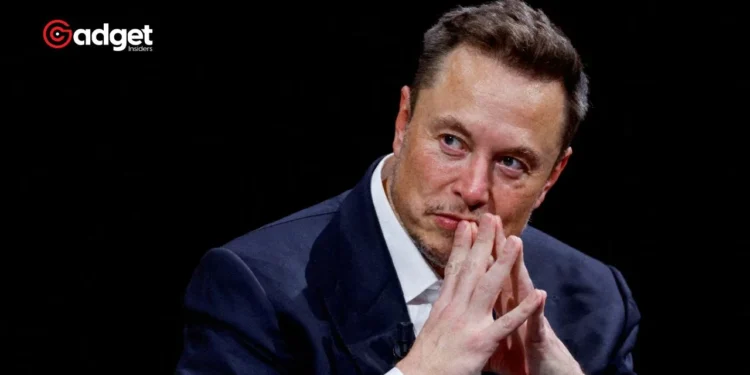In the rapidly evolving world of cryptocurrency, where the promise of technological advancement often blurs the lines between reality and fantasy, a new scam has emerged from Hong Kong, ensnaring investors with a highly sophisticated deception. Using deepfake technology, a crypto exchange falsely presented Elon Musk, a figure synonymous with innovation, as the brains behind an AI-driven trading platform.
This disturbing misuse of artificial intelligence highlights a troubling trend where deepfakes—digital replicas of people, realistic enough to fool the human eye and ear—are being weaponized to commit fraud. Authorities in Hong Kong have recently issued alerts about these scams, particularly pointing out a group known as Quantum AI or AI Quantum. This entity is not related to NASA’s Quantum AI Lab, which is focused on quantum computing.

The Mechanisms of Deception: How Scammers Use Technology to Lure Victims
Deepfakes employ sophisticated AI algorithms to create fake videos and audio recordings, making it appear as though certain individuals are saying or doing things that never actually happened.
In this case, the scammers used deepfake videos of Musk to convince potential investors of his involvement in their dubious project. The group operated through multiple platforms, including three websites and two Facebook pages, all purportedly offering a cutting-edge cryptocurrency trading service powered by AI.
According to the Hong Kong Securities and Futures Commission, these fraudulent activities are merely a facade for what is likely a more extensive scam involving virtual assets. The danger of these scams lies not only in their convincing appearance but also in their ability to grant illegitimate businesses a veneer of legitimacy and trustworthiness.
Fake Elon Musk is a scam, and is not connected to a crypto company.https://t.co/DtoFWblhH4
— Tech Times (@TechTimes_News) May 13, 2024
Elon Musk Deepfake Scams: A Growing Threat
This is not the first incident where Elon Musk’s likeness has been misused in deepfake scams. In a notable case reported earlier, a South Korean woman lost $50,000 after being deceived by a scammer impersonating Musk on Instagram, even exchanging “I love you” during a manipulated video call. Such personal and direct engagement using deepfake technology significantly enhances the scam’s credibility, making it harder for individuals to discern the truth.

The Role of Authorities and the Need for Vigilance
The Hong Kong Police Force has taken action by shutting down the implicated websites and social media accounts, but the battle against deepfake scams is far from over. As AI technology becomes more accessible and its applications more sophisticated, the potential for misuse increases, making it imperative for individuals to remain vigilant.

Crypto investors and the general public must be educated about the signs of deepfake scams and the importance of verifying information through reliable sources. While the technology behind AI can bring about groundbreaking innovations, it also poses significant risks if left unchecked.
In conclusion, as we venture further into the digital age, where the lines between real and artificial are constantly being tested, it becomes crucial to foster a sophisticated understanding of technology not just for innovation, but for protection against those who seek to exploit it.










